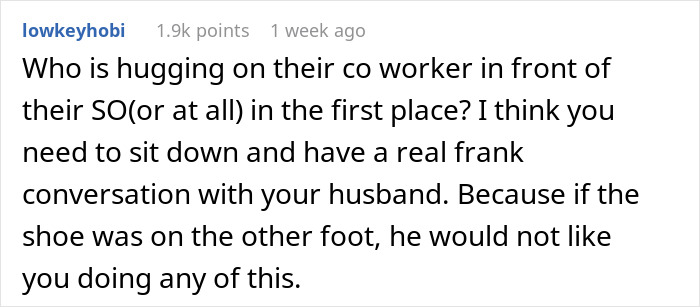In the current 40–45-hour-week work culture, forming close relationships with colleagues is often inevitable. Sure, bonding with coworkers has always been an important part of work life and helps to foster a more positive environment, but some employees are taking it to the next level, forming deep relationships comparable to those of their spouses.
Recently, redditor Playful-Rub-3791 discovered that her husband also has a so-called work spouse. She found this out after he started trashing the lunch she packed and eating the one his colleague had prepared instead. After confronting him about it, he called the wife petty, which ignited a conflict.
Some employees form deep relationship with their colleagues, comparable to those of their spouses

Image credits: westend61/Envato (not the actual photo)
When this woman found out her husband’s ‘work wife’ even prepared lunch for him, she wasn’t too happy about it
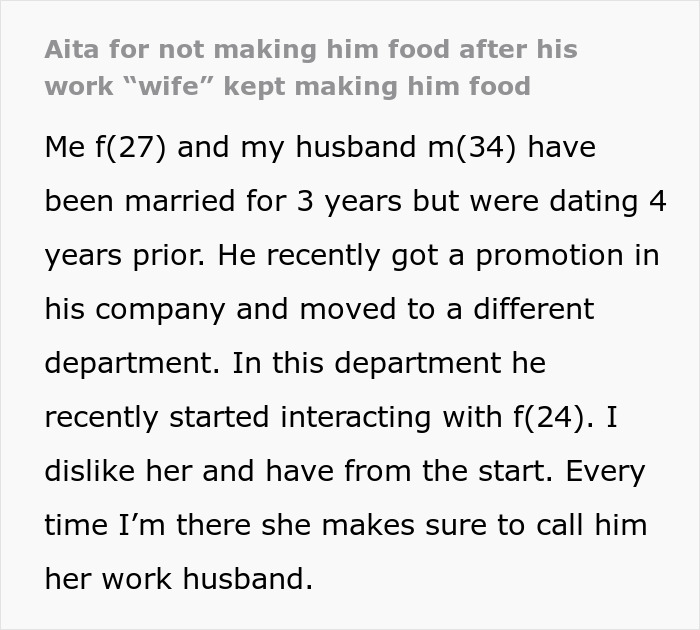



Image credits: NataKor5/Envato (not the actual photo)


Image credits: Playful-Rub-3791
“Having a close connection at work can provide a sense of mutual camaraderie and lighten a serious work environment”

Image credits: Fox/Pexels (not the actual photo)
In 2015, communication researchers M. Chad McBride and Karla Mason Bergen defined a work spouse as “a special, platonic friendship with a work colleague characterized by a close emotional bond, high levels of disclosure and support, and mutual trust, honesty, loyalty, and respect.”
It’s completely standard to form close relationships at work, as the people a person sees the most often and communicates with regularly tend to be the ones they form the strongest bonds with. Having spent so much time together at work, they know what goes on in their lives, understand why they’re in a certain mood, and are aware of their strengths and weaknesses.
We are also likely to form such relationships because of the similarities that people share in certain professions. Research shows that people tend to take an interest in other individuals that are similar to us. Since we gravitate towards careers based on personality traits, people who work together share attributes with each other, making them natural friends.
“Having a close connection at work can provide a sense of mutual camaraderie and lighten a serious work environment, especially if you share private jokes with them,” explains therapist Nicholette Leanza, LPCC-S. “You may be more willing to accept constructive feedback from a work spouse as well which can even improve your job performance.”
45% disapprove of their partner having a work spouse

Image credits: Anna Shvets/Pexels (not the actual photo)
However, not everyone finds a ‘work spouse’ relationship acceptable. A poll by Redfield & Wilton Strategies found that 21% of respondents believed that having one was okay, while 45% disapproved of it.
Those who find such bonds unacceptable worry that these relationships can potentially turn romantic. Their worry is partly valid, as 7% of professionals confessed to having crossed the line with a work spouse.
“There is a tendency for people to have an emotional affair with their work wife or work husband when things are not really going well at home,” Jennifer B. Rhodes, a psychologist and dating coach, told Business Insider.
Navigating such relationships can be difficult, especially if there’s an intense emotional connection. Therefore, it’s important to create boundaries and transparency between the colleagues and their respective significant others.
“If you have a romantic partner, tell them about your work spouse and introduce your work spouse to your romantic partner,” suggests psychologist Michele Goldman, PsyD. “Tell your romantic partner parts of the conversations you’re having with your work spouse to include them in the relationships. This reduces the likelihood of jealousy and secrecy.”
To keep the relationship professional, career coach Hallie Crawford recommends being up front about what it means to them and having clear boundaries between work and personal issues. She also advises them not to say anything their partner wouldn’t want to know about. Lastly, she suggests keeping physical contact to a professional level, like a handshake or a pat on the back, and being mindful of what’s appropriate in a corporate setting.
Some readers supported the author, saying that the food is not the only issue
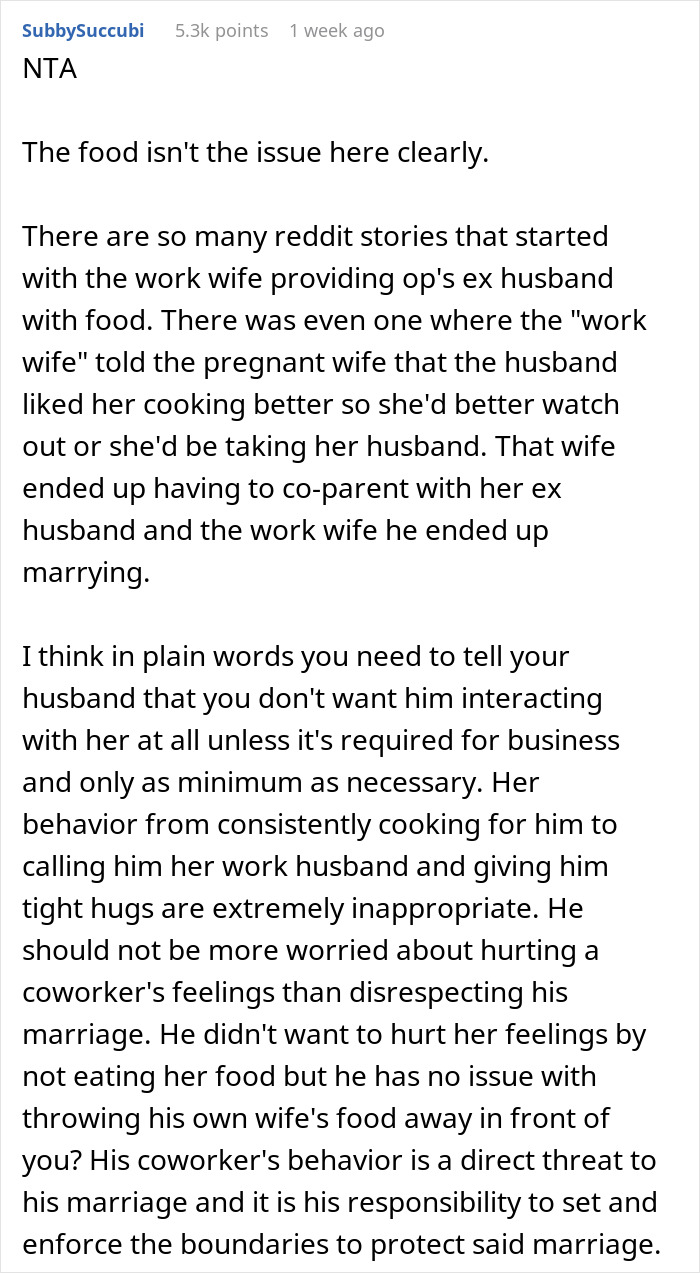





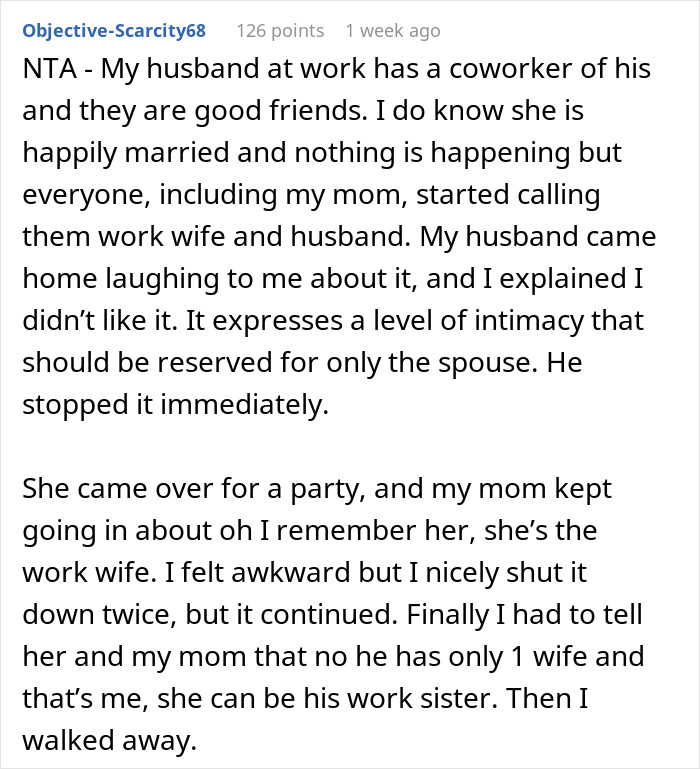






Meanwhile, others believed she was overreacting
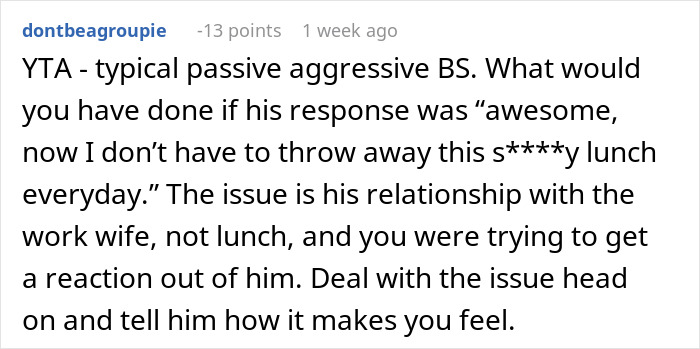



There were also other various types of reactions




